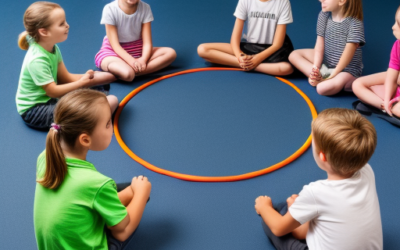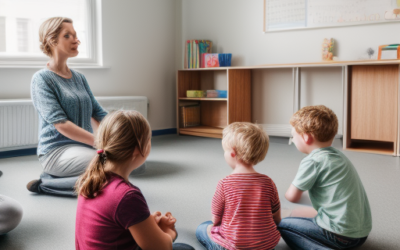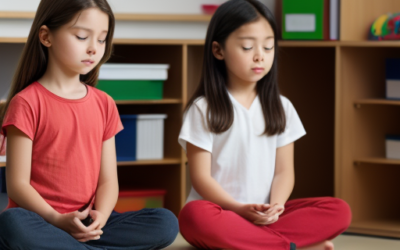20 QUESTIONS
20 Question Breathing Self-Assessment
This self-assessment will help you evaluate your current breathing
patterns and their impact on your overall well-being.
Please rate each question on a scale of
1 to 5, with 1 being poor and 5 being excellent.
- How often do you catch yourself breathing through your mouth instead of your nose?
– 1: Very often
– 2: Often
– 3: Sometimes
– 4: Rarely
– 5: Never
- How deeply do you usually breathe?
– 1: Very shallow
– 2: Shallow
– 3: Moderate
– 4: Deep
– 5: Very deep
- How often do you feel breathless or find it difficult to take a full breath?
– 1: Very often
– 2: Often
– 3: Sometimes
– 4: Rarely
– 5: Never
- How aware are you of your breath throughout the day?
– 1: Not aware at all
– 2: Rarely aware
– 3: Sometimes aware
– 4: Often aware
– 5: Always aware
- How regularly do you practice conscious breathing exercises?
– 1: Never
– 2: Rarely
– 3: Sometimes
– 4: Often
– 5: Always
- How often do you feel tense or stressed without an apparent reason?
– 1: Very often
– 2: Often
– 3: Sometimes
– 4: Rarely
– 5: Never
- How well do you manage your stress levels and remain calm during challenges?
– 1: Very poorly
– 2: Poorly
– 3: Moderately
– 4: Well
– 5: Very well
- How regularly do you engage in physical activities or exercise that require deep breathing?
– 1: Never
– 2: Rarely
– 3: Sometimes
– 4: Often
– 5: Always
- How often do you experience symptoms of anxiety, such as racing heart or shallow breathing?
– 1: Very often
– 2: Often
– 3: Sometimes
– 4: Rarely
– 5: Never
- How often do you wake up feeling refreshed and energized in the morning?
– 1: Very rarely
– 2: Rarely
– 3: Sometimes
– 4: Often
– 5: Always
- How often do you find yourself taking short, rapid breaths during moments of stress?
– 1: Very often
– 2: Often
– 3: Sometimes
– 4: Rarely
– 5: Never
- How well do you manage your emotions and maintain emotional balance throughout the day?
– 1: Very poorly
– 2: Poorly
– 3: Moderately
– 4: Well
– 5: Very well
- How aware are you of any tension or discomfort in your chest or shoulders related to breathing?
– 1: Not aware at all
– 2: Rarely aware
– 3: Sometimes aware
– 4: Often aware
– 5: Always aware
- How frequently do you find yourself sighing or yawning throughout the day?
– 1: Very often
– 2: Often
– 3: Sometimes
– 4: Rarely
– 5: Never
- How regularly do you engage in relaxation techniques or mindfulness practices that involve focused breathing?
– 1: Never
– 2: Rarely
– 3: Sometimes
– 4: Often
– 5: Always
- How often do you experience feelings of fatigue or tiredness despite adequate sleep?
– 1: Very often
– 2: Often
– 3: Sometimes
– 4: Rarely
– 5: Never
- How well do you maintain your focus and concentration throughout the day?
– 1: Very poorly
– 2: Poorly
– 3: Moderately
– 4: Well
– 5: Very well
- How aware are you of your breath when engaging in sedentary activities, such as sitting or working at a desk?
– 1: Not aware at all
– 2: Rarely aware
– 3: Sometimes aware
– 4: Often aware
– 5: Always aware
- How regularly do you engage in outdoor activities that naturally encourage deep and mindful breathing?
– 1: Never
– 2: Rarely
– 3: Sometimes
– 4: Often
– 5: Always
- How often do you feel a sense of calm and relaxation after practicing conscious breathing exercises?
– 1: Very rarely
– 2: Rarely
– 3: Sometimes
– 4: Often
– 5: Always
Once you’ve completed all 20 questions, calculate your total score and follow the provided scoring and analysis guide to gain insights into your current breathing knowledge and habits.
Continue answering the remaining 10 questions using the same rating scale.
Scoring and Analysis:
- Total your scores for all 20 questions.
- Divide the total by 20 to get your average score.
- Refer to the following analysis based on your average score:
Score Range: 20-30
Your breathing habits indicate poor awareness and control. Consider exploring ways to improve your breathing patterns to enhance your overall well-being.
Score Range: 31-40
You have moderate breathing habits but still room for improvement. Practicing conscious breathing exercises could bring positive changes to your health and stress levels.
Score Range: 41-50
Your breathing patterns are fairly good, indicating that you are conscious of your breath and its impact on your well-being. Continue practicing and enhancing your skills.
Score Range: 51-60
Congratulations! Your breathing habits are excellent, reflecting your commitment to mindful breathing and its benefits. Keep up the good work and enjoy the rewards of a healthy breathing practice.
Breathing Training Lessons for Educators
Welcome to the Breathing Training Blog Series for Australian Early Childhood Educators. Find all the information you need to begin practising conscious breathing with your children.
Title: The Educators Toolkit
Download all the tools and resources for our Educational Blog Series: Conscious Breathing for Australian Early Childhood Educators
Taking Action: Integrating Conscious Breathing Into Your Practice
This blog post guides educators through practical steps to integrate conscious breathing into their practice. By presenting specific techniques, classroom activities, and reflective practices, it empowers educators to foster emotional resilience in themselves and the children they guide. The downloadable toolkit offers hands-on resources to seamlessly incorporate mindful breathing into daily routines, enhancing emotional awareness and balance.
Title: Breath of Calm: Navigating Emotional Landscapes Through Conscious Breathing
This blog post dives into the profound connection between conscious breathing and emotional resilience for educators and children. By highlighting the breath-emotion link and citing relevant studies, it establishes conscious breathing as a powerful tool for emotional regulation and self-awareness. The downloadable toolkit enhances the reader’s experience by providing practical exercises that promote emotional balance through mindful breathing.
Title- Breathe In, Health Out: Elevating Educator Physical Wellbeing
Elevate your physical wellbeing through the power of conscious breathing. Stay tuned for more insights and resources to enrich your journey towards holistic health and personal growth. #consciousbreathing #physicalwellbeing #earlychildhood
Title: Breathe Mindfully, Think Sharply: Enhancing Educator Mental Clarity
This blog post presents conscious breathing as a tool for enhancing mental clarity and cognitive function for educators. By providing scientific references and studies, it establishes a credible link between mindful breathing and cognitive benefits. The downloadable guide adds actionable value for readers seeking to integrate conscious breathing into their daily routines for improved mental focus.
Title Breathe In, Embrace Emotions- How Conscious Breathing Enhances Emotional Resilience
This blog post draws a clear connection between conscious breathing and emotional resilience for educators. By providing references to studies and their findings, it reinforces the practical benefits of conscious breathing in managing emotions. Additionally, the inclusion of a downloadable guide adds tangible value for readers to implement in their daily routines.
Unveiling the Power of Conscious Breathing for Educators Lesson1
Educator Skills TrainingBREATHING TRAINING BLOG SERIES Unveiling the Power of Conscious Breathing for Educators Title: Breath of Wellness: Unleash the Potential of Conscious Breathing for Educators Lesson 1 Introduction:Welcome to the transformative world...
30 Breathing Activities to do with Children right now
Authored by Coach, Educator and early learning professional, Huia Maree Hikaiti – this article explores a list of 30 breathing activities and experiences to explore the power of conscious breathing,





